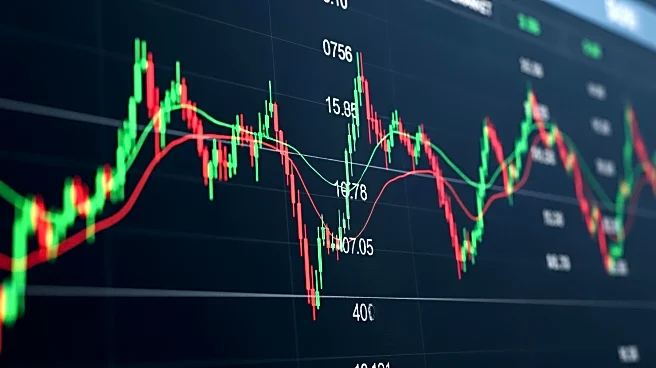What's Happening?
Organizers of the 'No Kings' rallies are preparing for nationwide protests against President Trump's perceived expansion of executive power. Scheduled for Saturday, these protests are expected to occur
in 2,500 towns and cities across the United States. Concerns have been raised about the presence and potential aggressive behavior of federal authorities in cities where these protests will take place. Chip Gibbons, policy director for Defending Rights & Dissent, expressed worries about federal forces provoking incidents to justify their actions. The coalition behind the protests is emphasizing nonviolence and de-escalation, training volunteers to handle potential disruptions by far-right agitators. The White House has dismissed these concerns, focusing on preventing left-wing violence. Local officials, such as Portland Mayor Keith Wilson, are also preparing for possible federal escalation, highlighting the peaceful nature of past demonstrations.
Why It's Important?
The 'No Kings' rallies represent a significant moment in U.S. civil society's response to perceived authoritarianism. The protests highlight tensions between federal authority and local governance, with implications for civil liberties and the right to peaceful assembly. The federal government's response could set precedents for handling large-scale protests, impacting public policy and societal norms around dissent. The events may influence political discourse, with Republicans framing the protests as extremist, while Democrats and civil rights groups advocate for peaceful expression. The outcome of these rallies could affect public perception of President Trump's administration and its approach to civil unrest, potentially influencing voter sentiment and future policy decisions.
What's Next?
As the protests approach, organizers are focusing on safety and de-escalation strategies to prevent violence and ensure peaceful demonstrations. The American Civil Liberties Union is providing training on rights and interactions with federal agents. Local governments are preparing for federal presence, with officials like Portland's mayor expressing concern over federal actions. The protests may prompt further political debate, with Republicans and Democrats likely to continue their rhetoric around the events. The response from federal authorities could lead to legal challenges or policy reviews regarding the deployment of federal forces in domestic protests. Observers will be watching for any incidents that could escalate tensions or influence public opinion.
Beyond the Headlines
The 'No Kings' rallies underscore deeper issues of federalism and the balance of power between national and local authorities. The protests may reflect broader societal concerns about executive overreach and the erosion of democratic norms. The involvement of older Americans, as noted by activist Bill McKibben, highlights intergenerational engagement in political activism, drawing parallels to historical movements against authoritarianism. The rhetoric from both sides may contribute to polarization, affecting cultural and political dynamics in the U.S. The events could also influence international perceptions of American democracy and its resilience in the face of internal challenges.










